The red string of fate [姻緣紅線] ties lovers together. Ankle to ankle, thumb to little finger, little finger to little finger. Which means that, at some point in your life, you're destined to meet. That you'll find your way to each other no matter the circumstance.
This makes think of the Chinese word 緣分 (yuán fèn). One could loosely translate this to "fate" but "fate" has too much of a hopeful quality to it—a sort of groundless certainty that you'll have a happy ending. Yuán fèn, in my opinion, covers all the bases: the good, the bad, the kind of destiny that is built off of the lives you once lived. Which is to say that luck will find you if you were a good person, but misfortune will find you just as easily if you were not.
I think it's kind of twisted, really. That my current life is based off of my past life, and yet, I cannot recall a single moment of that life. What kind of person was I? What sort of life did I live? Did people like me? Did I like myself?
I guess what I mean is that I don't trust the red string of fate. I don't think it's straightforward, that it hasn't wrapped around other people on its way to whoever I'm destined to be with. I know this because I find myself led to certain things, certain people, and it's made me more wary than before. Although I suppose I'm not the only one that feels this way. Sia tells me that Yuè Lǎo—the man under the moon, the man in charge of the thread—believes that compatibility is much more important than romance; that one can exist without the other, but the former means more than simply a strong affinity for someone. In fact, love seems to be the least important factor in determining who your fated person is.
The thought makes me sad. I've always loved the concept of love (love loves to love love), which I thought the red string of fate would be based first and foremost on. After all, the most impactful and memorable Chinese myths are that of love stories. The butterfly lovers, the cowherd and the weaver girl, the legend of the white snake—the list goes on. But all of these are love stories that have moved even the gods. So why is it that this myth—the red string of fate—tosses love aside as something with little to no importance? It's disappointing, really.
What I mean is that I used to think that everything that was meant to be mine, would be mine, but even those that weren't meant to be mine, were mine as well. I used to write love letters to a boy who didn't like reading. It was months before I stopped—before I finally realized he no longer cared to read them all the way through. Sometimes, I wonder if he remembers them. If he ever thinks about how I stopped writing those paragraphs I'd send in the middle of the night. They certainly meant more to me than they did to him; even now, I can recite a few from memory.
I don't know. I'm the type to see signs everywhere. The things that'd make me think that this person is the person I'm meant to be with, and how could it be possible that there was anyone else? This is to say that I grew up far too soft, and I didn't realize that there were consequences to that. I become attached to potentials, to possibilities, to maybes and what-could-have-beens.
It's just silly to me that the red thread's existence far exceeds my own. Is this to say that the things we don't see matter more than the things we do? I can't seem to fathom the possibility that something that isn't meant to be seen is meant to have more control over my life than I do. How does that make any sense? Am I on this earth to be toyed with? I don't think that's right. I am on this earth for far more important things, like reading poetry and playing card games and laughing with my loved ones and crunching fallen leaves beneath my feet and all the the things I could never have dreamed of. The future is waiting patiently for me. This, I know.
Although I surely must admit there is certainly some logic in the red string of fate's existence. That everyone is a little foolish, filled with too much longing for our own good. And what is longing, if not love in disguise? After all, longing [渴望] is comprised of the word for thirsty [渴] and the word for hope [望]. In a desert, it is inevitable that you drag yourself to the first body of water that you find—without hesitation. Without considering the consequences. For it is a word with such forwardness, too, filled with a voracious appetite for the obscure. And with such hunger comes foolishness; when the longing becomes too intense, it is all too easy to place your hopes in the palms of the first person who extends their hand to you.
So I suppose we do need something to pull us back. To keep us anchored. To keep us going in the right direction.
Which is to say that I do understand that love isn't everything. That it's not the solution to all problems. I've experienced this firsthand. I've learned that lesson and I hated it enough to really understand it. You can love somebody so, so much, and it can still fall apart. It doesn't always end well. And, really, it rarely does.
I guess I should learn to appreciate a belief that has long existed before me and will continue to exist after me. Though love may not be the most important factor, it is still a factor. And there is a beauty, of course, in being able to believe that there is someone, somewhere, who we're tied to. That something connects us—something that may stretch, tangle, bend, but never break. That soothes a tiny part of me (okay, okay, a large part of me) that is terrified of never being loved.
It's a silly fear, but one that I think about quite often. Once, my mother read my palms and told me that I'd get married at 27, 28—somewhere in my late twenties. Not too late, she had said then. But I'm nearing 25 and the thought terrifies me. Who am I going to meet? Who is it going to be? When is it going to be? How am I going to know that it's them? I'm such a foolish person that I'm afraid that, in my desperation, I'll twist the wrong person into being the right one for me.
At the same time though, I understand that to be loved is to be seen. Is it a sort of realization—a recognition? Perhaps the red string of fate does not simply lead you to the right person, but makes that right person known. I don't know. It's just something I'm hoping for. That I'll get it when I see it. That I recognize a connection that cannot be shaken. That I'll look back on this newsletter and laugh at myself and say, See? This is why people call it the red string of fate. You just never understood it because you didn't have the chance to experience the impossible.
Love always,
Erin and Sia


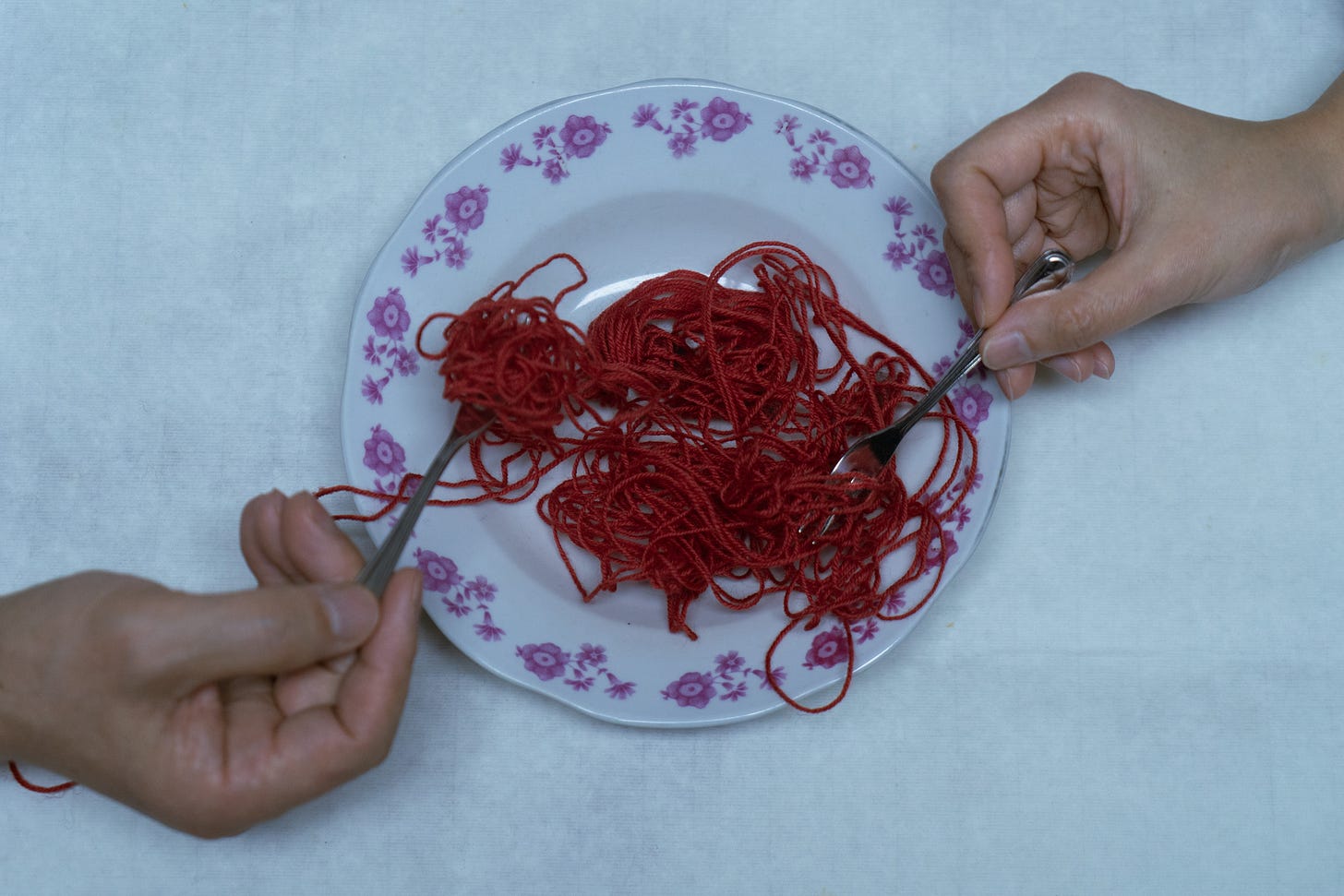
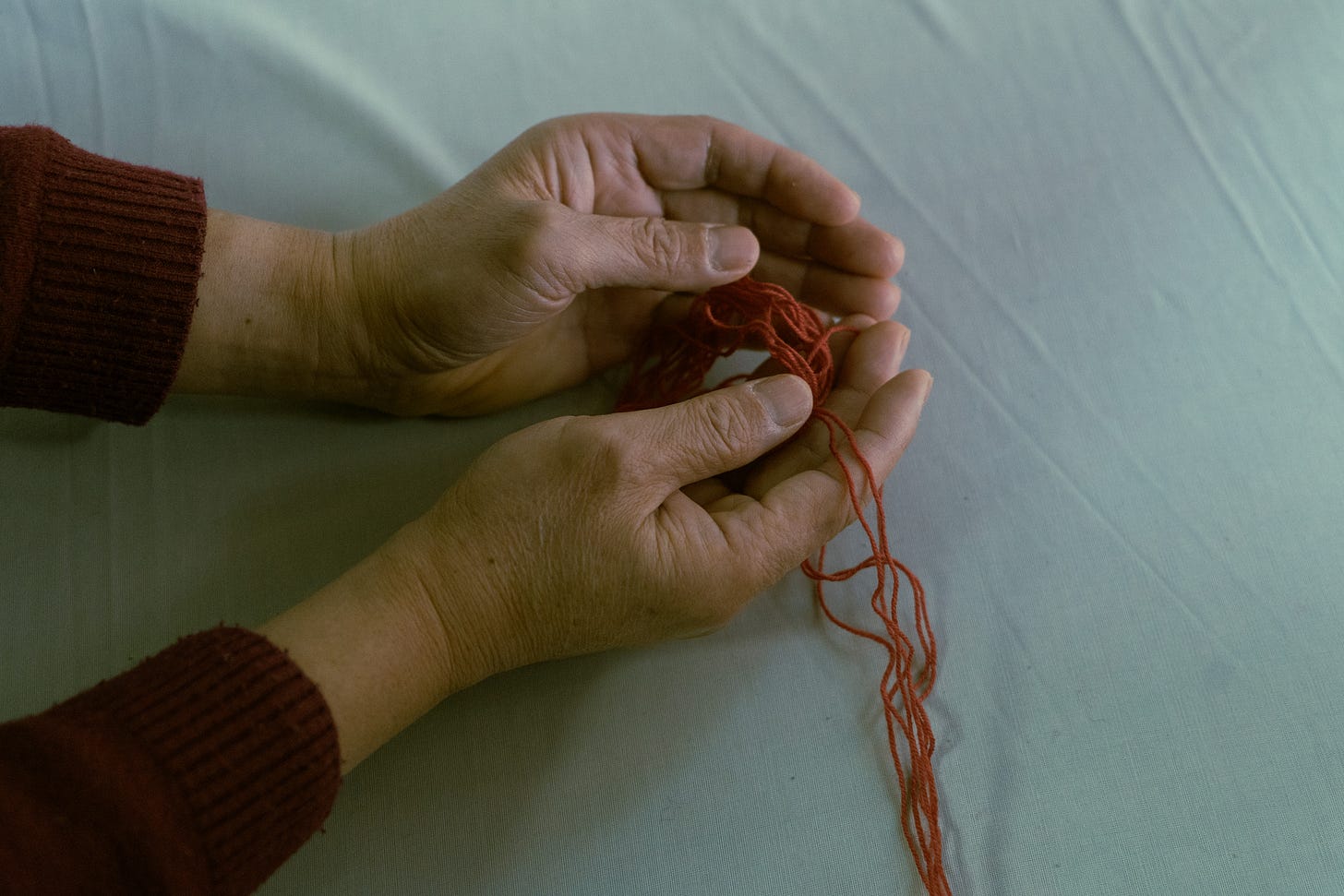
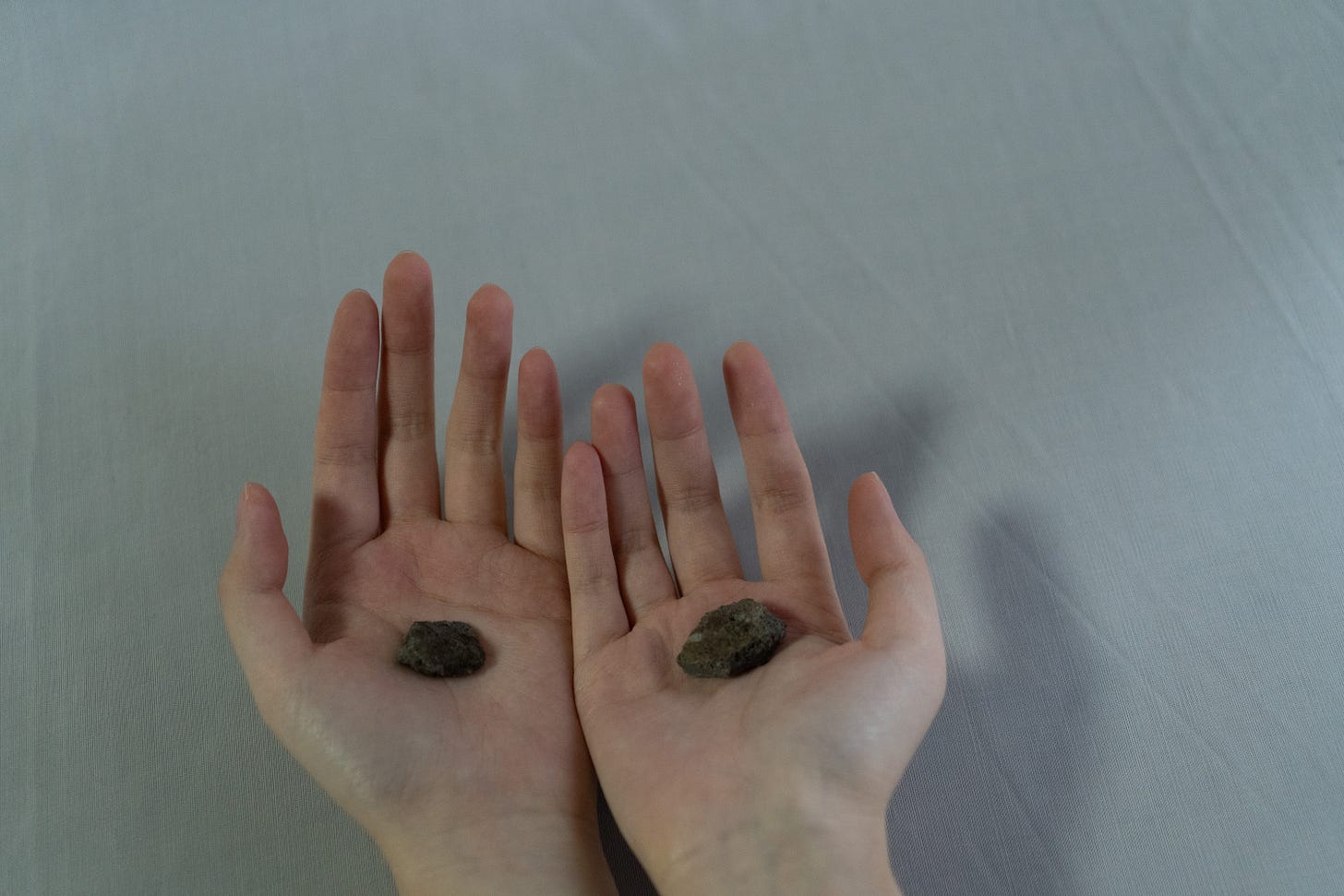
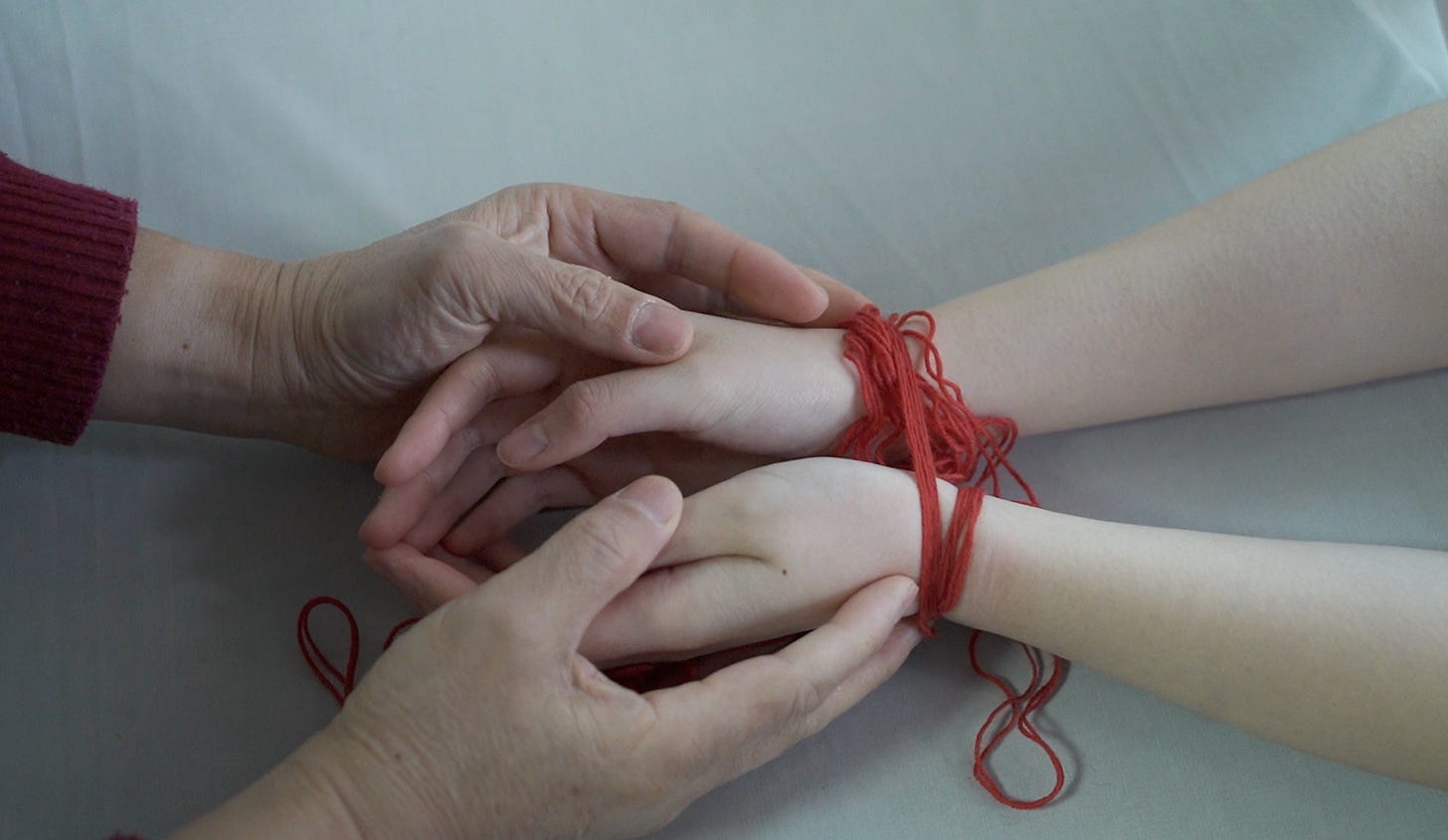
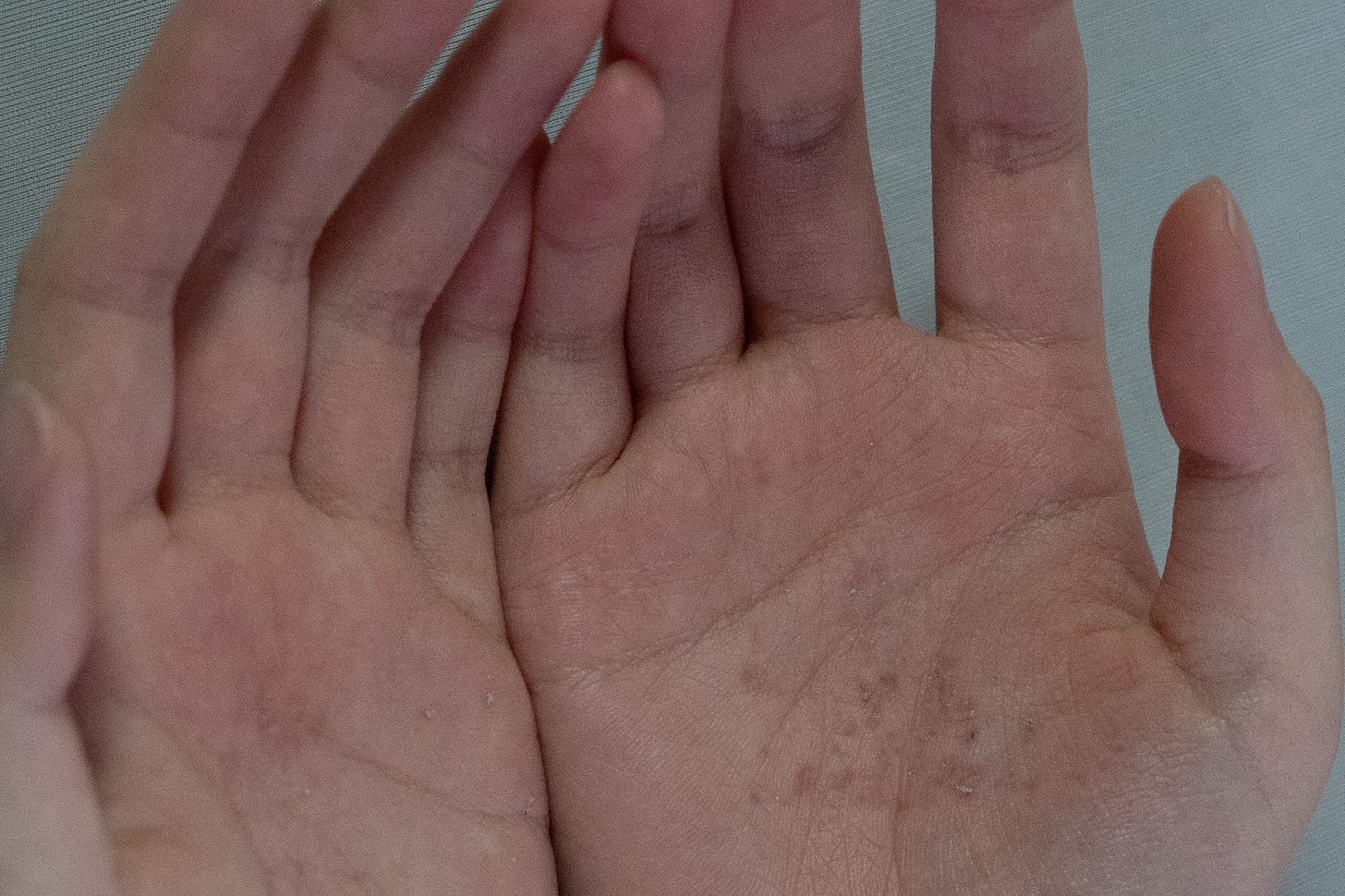
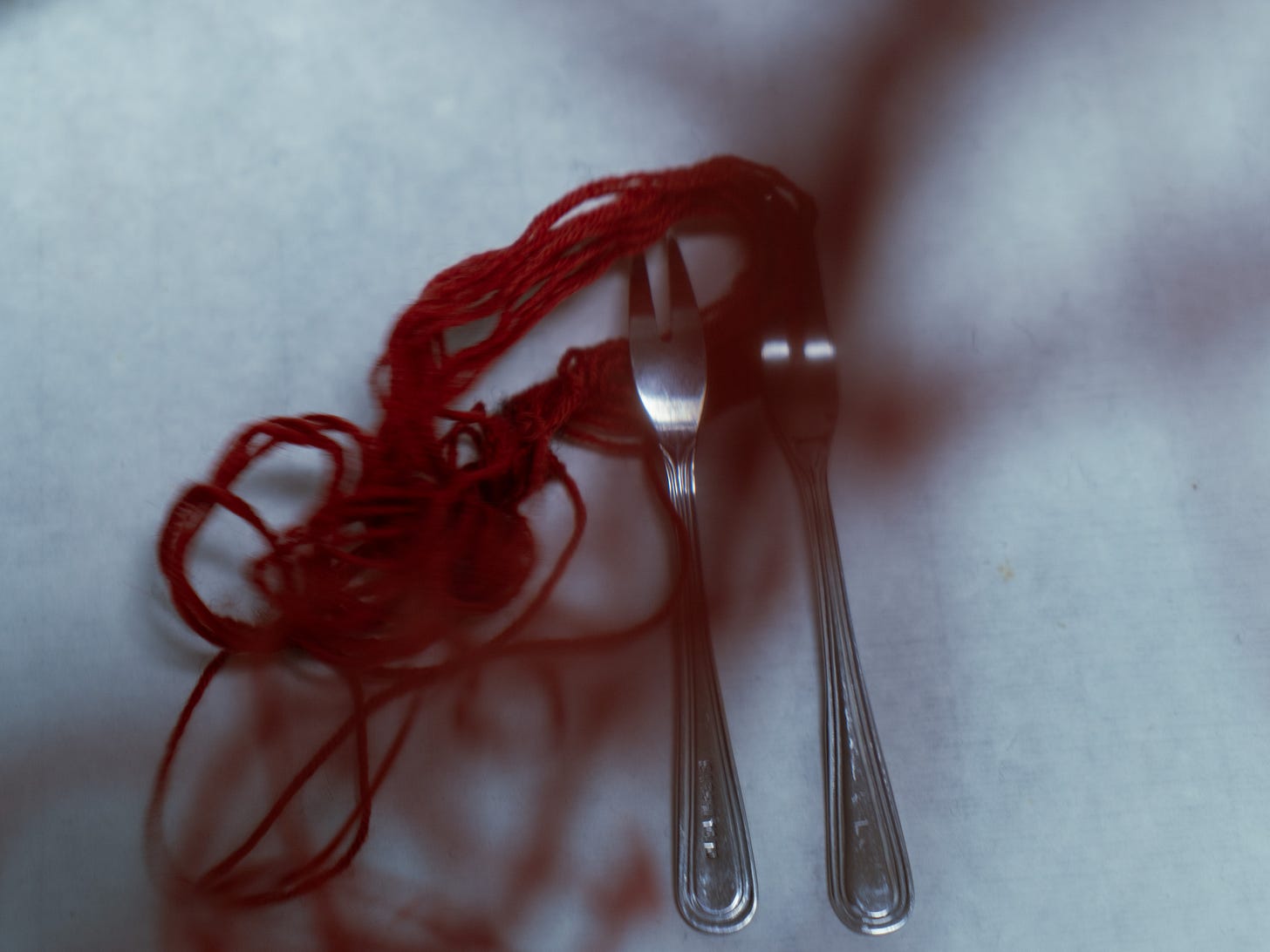
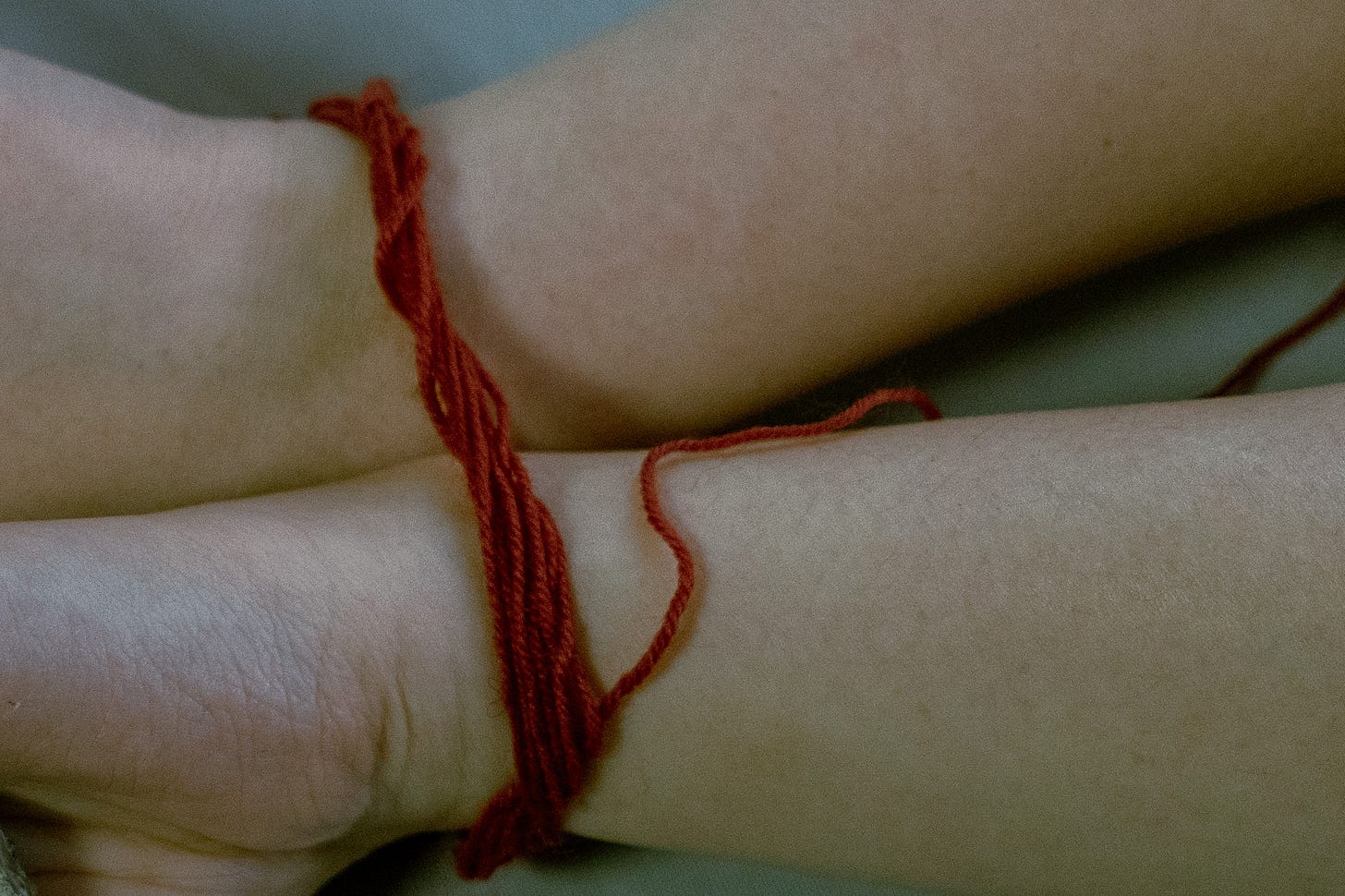
lovely piece 💗 i wrote my college application essay on the red string of fate